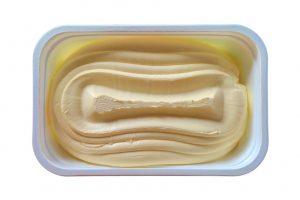What are the best Margarine substitutes?
Do you need to find a substitute for margarine? Or, are you looking for a healthier alternative to margarine? In this article, we will explore the top margarine substitutes that will not only elevate your cooking experience but also keep you on track with your health goals. Whether you are trying to reduce your saturated fat intake or simply looking for a plant-based option, we’ve got you covered. Butter, coconut oil, olive oil, and avocado oil are just a few of the fantastic margarine substitutes we will look at. Each option comes with its unique flavor profile and health benefits, so you can choose the perfect substitute for your culinary needs.
With our carefully selected substitutes, you can enjoy delicious and mouth-watering dishes without sacrificing your well-being. Whether you are indulging in baking, spreading on toast, or sautéing vegetables, these margarine substitutes will enhance the taste and texture of your favorite recipes. Get ready to elevate your cooking experience with these delicious and healthy margarine substitutes. So let’s dive in and discover the perfect option for you!
Try using: Butter, Olive Oil, Coconut Oil, Avocado Oil, Greek Yogurt, Nut Butters, Applesauce, Cream Cheese, Ghee, or Vegetable Shortening.
What is Margarine and how is it made?
Margarine is a spreadable butter substitute made from vegetable oils. Oils like soybean, canola, or sunflower are hydrogenated, which means they undergo a process where hydrogen is added to make them solid at room temperature. This process helps achieve that creamy texture you find in margarine. Sometimes, margarine also includes emulsifiers, colorings, and flavorings to enhance its taste and appearance. It became popular as a cheaper and cholesterol-free alternative to butter. Keep in mind that there are various types of margarine, so you might find some made with different oils or even plant-based alternatives.
Okay, before we look at your margarine substitute options, let’s deal with that empty cupboard situation!
Where can I buy Margarine?
If you want to be more prepared and ensure you don’t run out of margarine, then you should stock up now.
Nowadays, most delicatessens and general supermarkets stock a wide variety of margarine. Or if you prefer you can also purchase margarine on-line.
So why not jump on and place your order today.
STOCK UP NOW!
A little taste of Venezuelan in this Mavesa Margarine. Perfect for spreading on crackers or cachapas. And ideal for baking cakes and cookies.
Ingredients include milk and soy. Just open and start spreading!
What can I substitute for Margarine?
Here are some of the best ingredients to substitute the flavor and role that margarine provides in your recipes.
- Butter
- Olive Oil
- Coconut Oil
- Avocado Oil
- Greek Yogurt
- Nut Butters
- Applesauce
- Cream Cheese
- Ghee
- Vegetable Shortening
Margarine substitutes
Butter
You make butter by churning cream which has typically been sourced from cow’s milk. The churning process separates the cream into butterfat and buttermilk. After you collect the butterfat you then wash it. At this stage you can also add salt to it for additional flavor. This traditional method results in the rich and creamy butter we all know and love.
Now, is it a good substitute for margarine? Absolutely! Butter has a distinct, rich flavor that can enhance both sweet and savory dishes. It brings a classic touch and works well in baking, cooking, and spreading on toast.
Just keep in mind that butter contains saturated fats, so if you’re health-conscious, then moderation is key.
If you’re open to exploring different flavors and textures, butter can be a fantastic alternative to margarine in many recipes.

Olive Oil as a margarine substitute
Olive oil is a liquid fat obtained from olives, the fruit of the olive tree. It’s a key component of the Mediterranean diet and is well-known for its health benefits. The oil is extracted by pressing the olives, and there are different varieties, such as extra virgin, virgin, and regular olive oil, each with varying levels of processing and flavor.
Olive oil can be an excellent alternative for margarine, especially in recipes where a liquid fat works well. It brings a distinct flavor, ranging from mild to robust depending on the type you choose to use. Extra virgin olive oil, in particular, has a rich taste which you use for dressings, dips, and drizzling over dishes. It’s a healthier option, too, being a source of monounsaturated fats.
So, whether you’re sautéing, baking, or just spreading it on bread, olive oil can add a delicious and nutritious touch to your recipes.
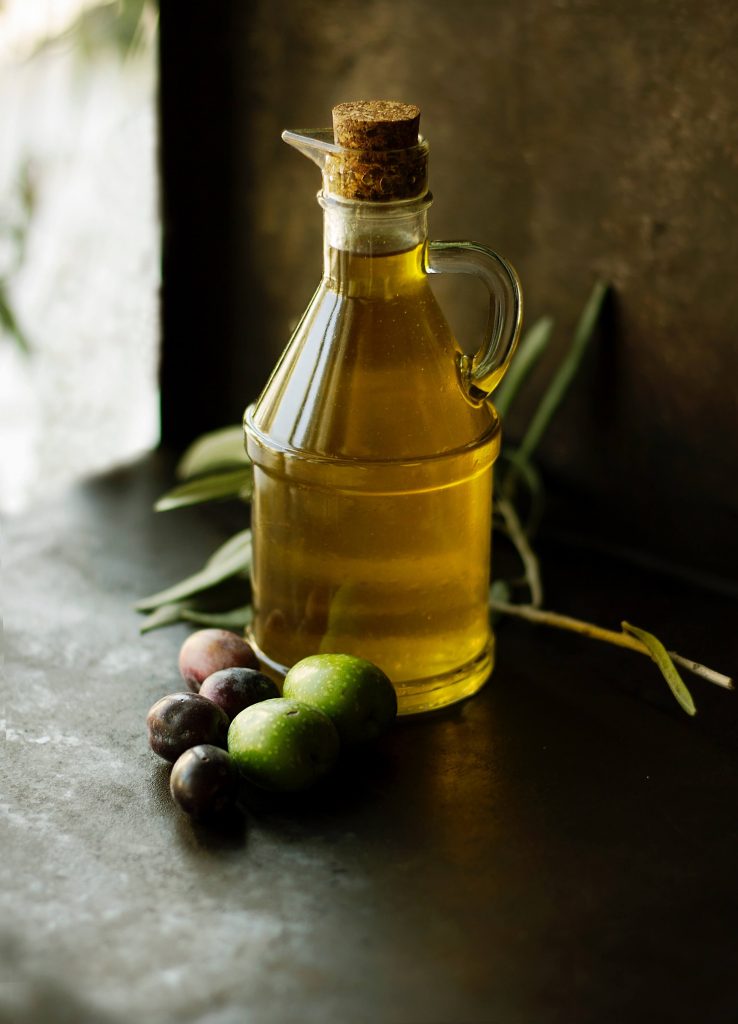
Coconut Oil as an alternative to margarine
Coconut oil is a versatile and popular edible oil derived from the meat of coconuts. It’s known for its unique flavor, mild sweetness, and high saturated fat content. The oil is extracted through various methods, including cold-pressing or expeller-pressing.
What is cold-pressing, and what is expeller-pressing?
- Cold-Pressing:
- Process: Cold-pressing involves mechanically pressing the oil-bearing seeds or fruits to extract the oil at temperatures typically below 122°F (50°C).
- Advantages: This method is favored because it retains more of the natural flavors, colors, and nutritional components of the oil. It’s considered a gentler process that helps preserve the oil’s quality.
- Expeller-Pressing:
- Process: Expeller-pressing also uses mechanical pressure, but it may involve slightly higher temperatures than cold-pressing. The seeds or nuts are fed into an expeller, a machine that crushes and presses them to extract the oil.
- Advantages: While it generates some heat due to friction during the pressing, expeller-pressing is still considered a relatively mild method compared to other extraction processes. It allows for efficient oil extraction without the need for added chemicals.
Coconut oil can be a fantastic alternative, especially in recipes where you want to impart a hint of coconut flavor. It’s solid at room temperature, making it a suitable replacement for margarine in many applications, like baking or spreading on toast. Keep in mind that coconut oil does have a distinct taste, so it works best in recipes where that flavor complements the overall dish. Additionally, coconut oil contains medium-chain triglycerides (MCTs), which some consider a beneficial type of fat. So, if you enjoy the taste of coconut and want a unique twist in your recipes, coconut oil is a great option to explore!
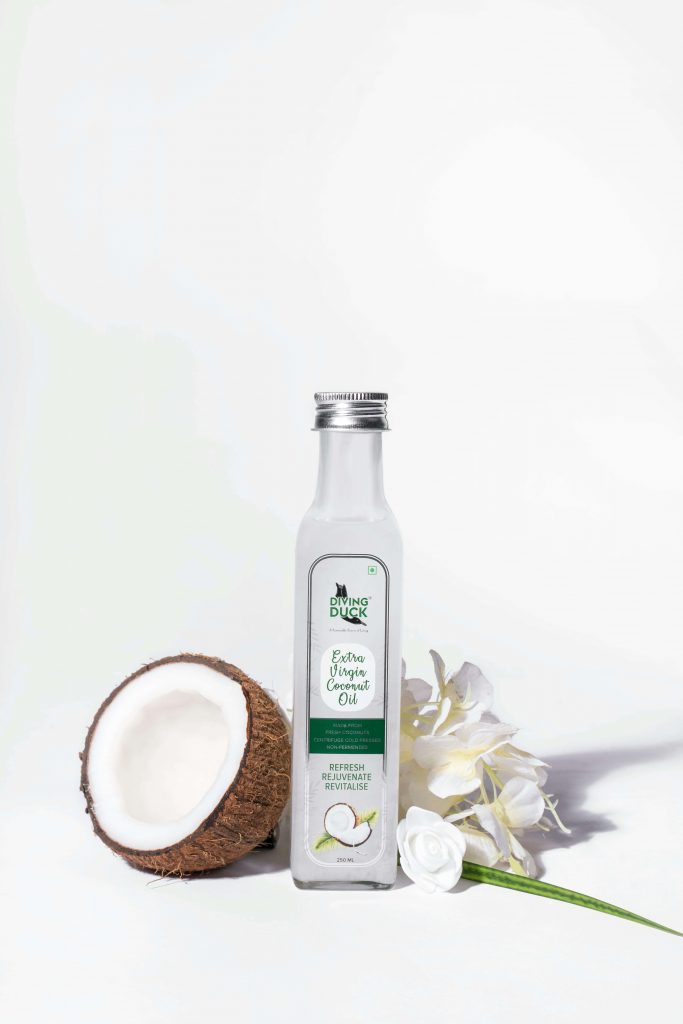
Avocado (mashed or oil)
Mashed avocado makes for a fantastic substitute for margarine, especially in certain culinary applications. Here’s why:
- Creamy Texture: Mashed avocado has a wonderfully creamy texture, making it a suitable spread for toast or sandwiches.
- Nutrient-Rich: Avocado is packed with nutrients, including heart-healthy monounsaturated fats, vitamins (such as vitamin K, vitamin E, and vitamin C), and potassium.
- Versatility: Besides being a spread, you can use mashed avocado in various recipes, such as dips, salad dressings, or even as a topping for grilled meats or veggies.
- Unique Flavor: Avocado has a mild, buttery flavor that complements both sweet and savory dishes. It can add a delightful twist to your recipes.
- Health Benefits: Avocado has many health benefits, including promotion of good heart health, supporting digestion, and providing essential nutrients.
So, whether you’re looking to spread it on your morning toast, use it as a base for a sandwich, or incorporate it into recipes as a butter substitute, mashed avocado is a nutritious and delicious option. It adds a satisfying creaminess with the bonus of offering a range of health benefits. Give it a try and see how it enhances your meals!
Avocado oil, on the otherhand, is a cooking oil pressed from the flesh of avocados. It has gained popularity for its mild flavor, versatility, and potential health benefits. You extract the oil through a process that typically involves cold-pressing the ripe avocado pulp, similar to the methods used for other vegetable oils.
Avocado oil is a healthy and flavorful alternative to margarine. Here’s why:
- Health Benefits: Avocado oil is rich in monounsaturated fats, which are considered heart-healthy fats. It also contains antioxidants, vitamins (such as vitamin E), and other nutrients that can contribute to a well-balanced diet.
- Mild Flavor: Avocado oil has a mild, slightly nutty flavor that doesn’t overpower dishes. This makes it a versatile choice for both sweet and savory recipes.
- Texture: Avocado oil is liquid at room temperature, making it easy to use in various culinary applications. You can drizzle it on salads, use it for sautéing, or incorporate it into baked goods.
- High Smoke Point: Avocado oil has a higher smoke point compared to many other cooking oils, including olive oil. This means it can withstand higher temperatures without breaking down and producing smoke, making it suitable for frying and high-heat cooking.
Whether you’re looking to sauté vegetables, bake, or spread something on your toast, avocado oil can be an excellent substitute for margarine. It brings a delicious and nutritious touch to your recipes.
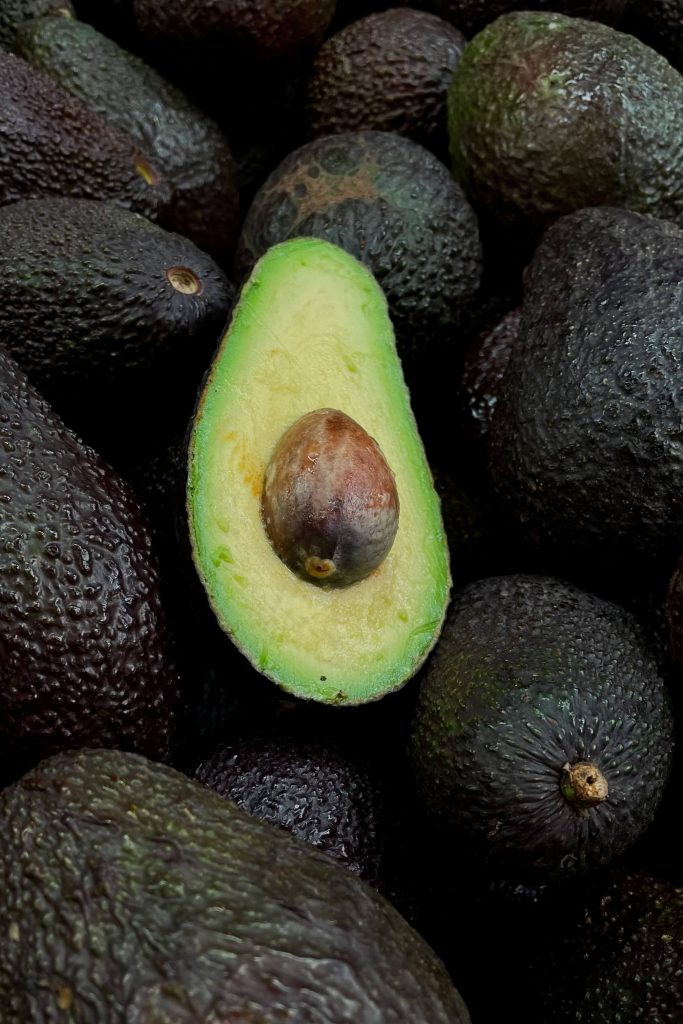
Greek Yogurt as a substitute for margarine
Greek yogurt is a thick and creamy yogurt variety that you strain to remove most of its whey, resulting in a richer and denser texture compared to regular yogurt. It’s known for its tangy flavor and is often praised for its higher protein content and lower sugar content.
Greek yogurt can indeed be a good alternative to margarine in certain situations:
- Baking: In some recipes, especially those that call for melted margarine, you can substitute Greek yogurt for a portion or the entirety. It adds moisture and a subtle tanginess to baked goods.
- Spreads and Dips: You can use Greek yogurt as a delicious spread on toast or a bagel, and it works well as a base for various dips. Mix it with herbs, garlic, or other seasonings for a flavorful alternative.
- Cooking: In some savory dishes, particularly those that require a creamy texture, you can use Greek yogurt instead of margarine to add richness without as much saturated fat.
- Health Benefits: Greek yogurt is a good source of protein, probiotics, and various nutrients. It’s often considered a healthier option compared to margarine, which can be high in saturated fats.
Keep in mind that the flavor and texture will differ from margarine, so the suitability of Greek yogurt as a substitute depends on the specific recipe and your taste preferences. Experiment with it in various dishes to see how it enhances both the flavor and nutritional profile of your meals.
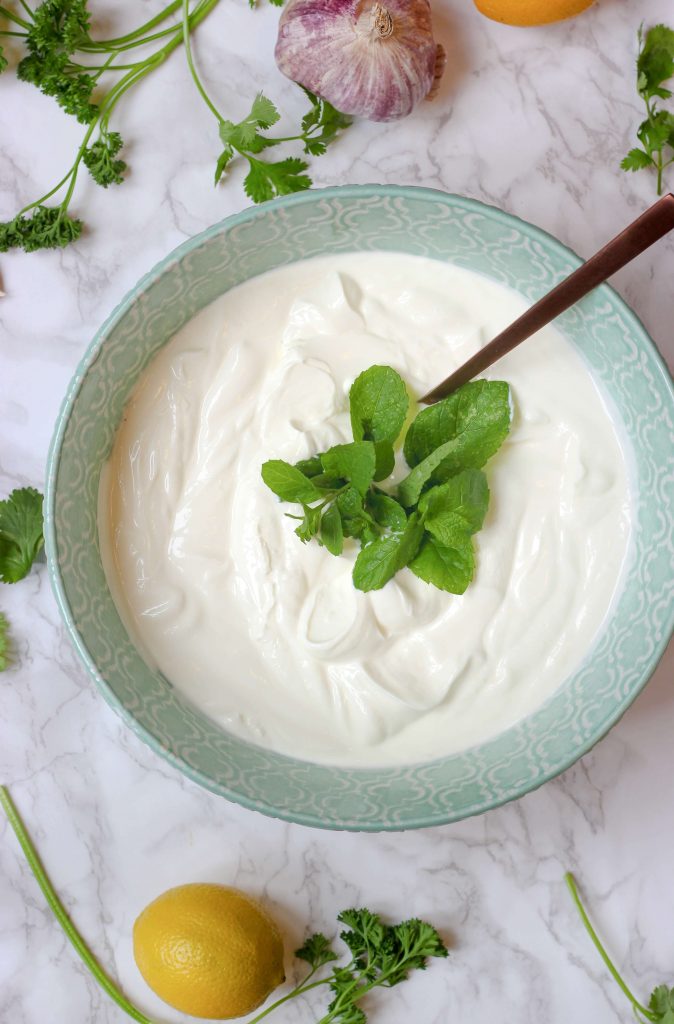
Nut Butters as a margarine alternative
Nut butters are creamy or crunchy spreads made by grinding nuts into a paste. Common varieties include peanut butter, almond butter, and cashew butter, among others.
Now, are nut butters a good substitute for margarine? Yes, they are, and here’s why:
- Rich Flavor: Nut butters bring a rich and nutty flavor to the table, enhancing both sweet and savory dishes.
- Nutrient-Rich: Packed with healthy fats, protein, vitamins, and minerals, they provide a nutritional boost to your meals.
- Versatility: You can spread nut butters on toast, use it as a dip for fruits or vegetables, incorporate it into smoothies, or even add it to savory sauces and dressings.
- Texture: Similar to margarine, nut butters have a spreadable texture, making them a convenient and delicious option for various recipes.
- Health Benefits: Nut butters, especially those made from almonds, peanuts, or cashews, contain monounsaturated and polyunsaturated fats, which are considered heart-healthy.
When substituting nut butters for margarine, consider the specific flavor profile of the nut butter and how it complements your recipe. Whether you’re baking, cooking, or spreading it on your morning toast, nut butters can add a delightful twist and nutritional value to your dishes.
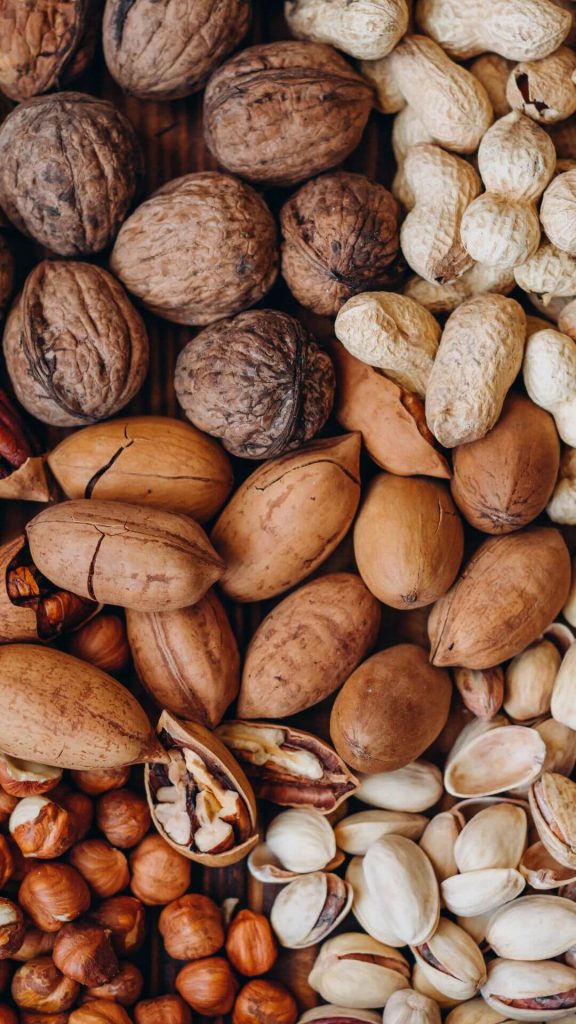
Applesauce as a margarine substitute
Applesauce is a versatile and naturally sweet condiment made from cooked and puréed apples. You can use it in baking and cooking to add moisture, sweetness, and a hint of apple flavor to various dishes. You can help control the sugar content of your recipes by always using unsweetened applesauce.
Applesauce is a good substitute for margarine. Here’s why:
- Moisture Replacement: Applesauce can replace some or all of the margarine in recipes that require moisture. This is particularly useful in baked goods like muffins, cakes, and brownies.
- Reduced Fat: Using applesauce as a substitute can reduce the overall fat content in your recipes, which can be beneficial if you’re looking for a lighter option.
- Natural Sweetness: Applesauce adds natural sweetness without the need for additional refined sugars, making it a healthier alternative in some recipes.
- Flavor Enhancement: Applesauce imparts a subtle apple flavor to your dishes, which can be a delightful addition, especially in desserts.
Just remember that while applesauce works well in many recipes, it might not be suitable for them all. In recipes where the fat content and texture of margarine are crucial, like in certain pastries or buttercream frostings, the substitution may not provide the desired results. It’s always a good idea to experiment in smaller batches to see how applesauce affects the texture and flavor of your final product. Give it a shot and enjoy the lighter, fruity twist it can bring to your recipes.
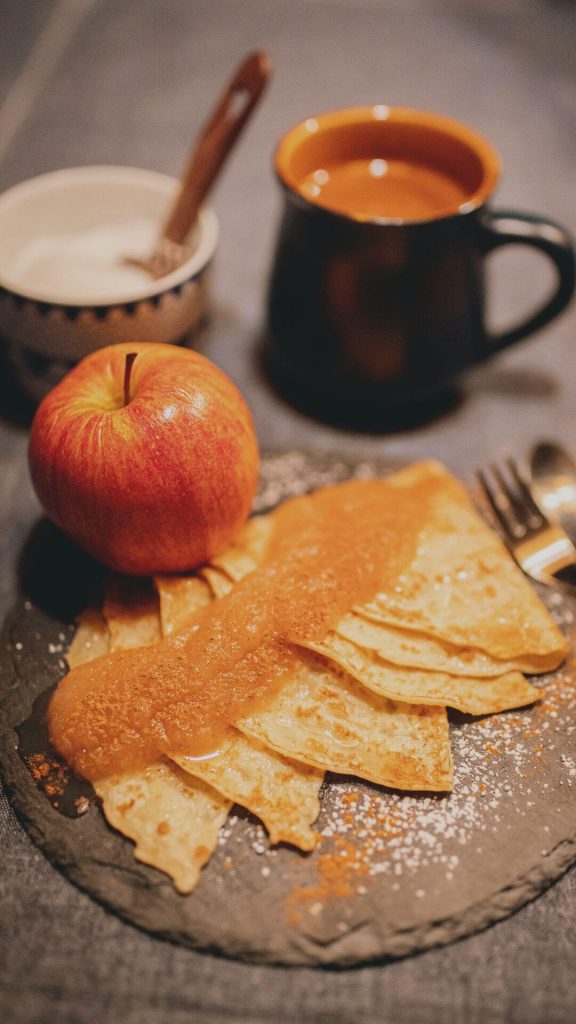
Cream Cheese as a margarine substitute
Cream cheese is a soft, mild-flavored cheese made from a combination of cream and milk. Known for its smooth texture you can use it in both sweet and savory dishes, such as spreads, dips, frostings, and desserts.
To use cream cheese as an alternate to margarine you need to understand how it will affect your recipe, as they both serve different purposes. Here’s why cream cheese might work as a substitute in certain scenarios:
- Texture: Cream cheese has a smooth and spreadable texture, similar to margarine. This makes it suitable for spreading on bread or crackers.
- Flavor: While cream cheese has a distinctive tangy flavor, it can be a delicious addition to certain recipes. It works particularly well in sweet applications like frosting or as a base for cheesecakes.
- Versatility: You can use cream cheese in both sweet and savory dishes. It’s a common ingredient in recipes ranging from savory dips to creamy pasta sauces.
However, it’s important to note that cream cheese is not a direct replacement for margarine in terms of providing a fat source for cooking or baking. They both have different textures, flavors, and functionalities. If you’re considering using cream cheese as a substitute, think about the specific role that margarine plays in your recipe and whether cream cheese can fulfill that function. In certain cases, especially in baking or for flavor purposes, cream cheese can add a unique twist to your dishes.
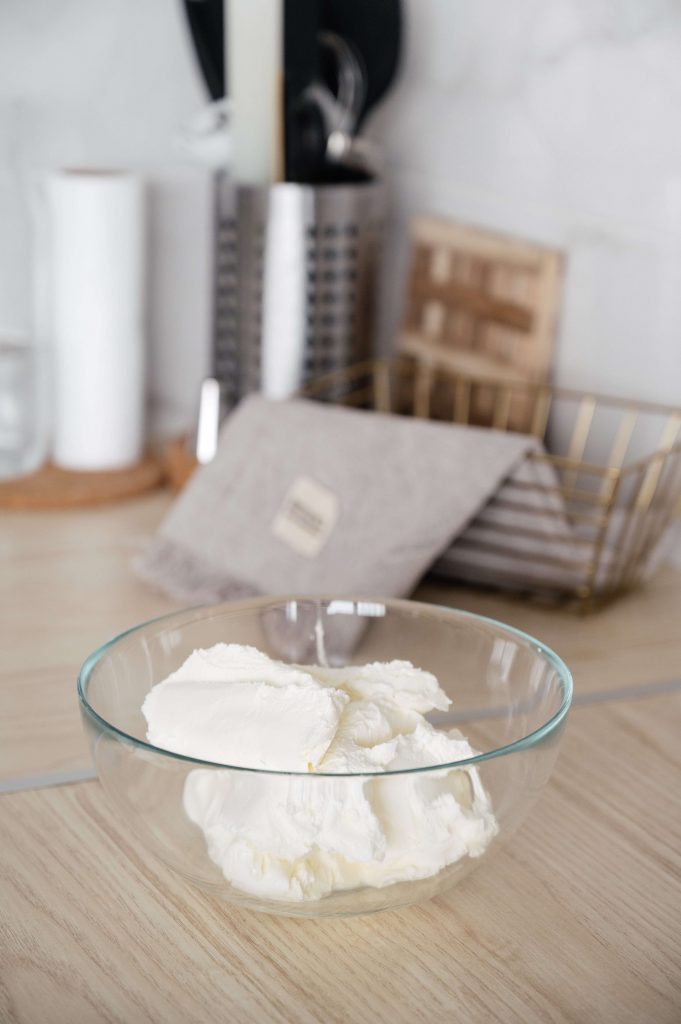
Ghee as a magarine alernative
Ghee is a type of clarified butter that originated in South Asia. You make it by simmering butter to remove the water content. You then strain the remaining golden liquid to eliminate milk solids. The result is a rich, nutty-flavored fat with a higher smoke point than regular butter.
Ghee can be a good alternative to because:
- High Smoke Point: Ghee has a high smoke point, making it suitable for cooking at higher temperatures without burning. This makes it great for sautéing, frying, and roasting.
- Rich Flavor: Ghee has a delicious, nutty taste that can add depth to both sweet and savory dishes. It brings a unique flavor profile that can enhance various recipes.
- Lactose-Free: Ghee is virtually lactose-free since the milk solids are removed during the clarification process. This makes it a suitable option for those who are lactose intolerant.
- Health Benefits: While it is still a source of saturated fat, ghee contains some beneficial compounds and is often considered a healthier alternative to margarine, especially if it’s made from grass-fed butter.
- Versatility: You can use ghee in a variety of culinary applications, from spreading on toast to cooking curries and baking.
Keep in mind that ghee and margarine have different flavors and textures, so the substitution may alter the taste of your dishes. However, if you’re open to exploring new flavors and enjoy the richness of ghee, it can be an excellent substitute in many recipes.
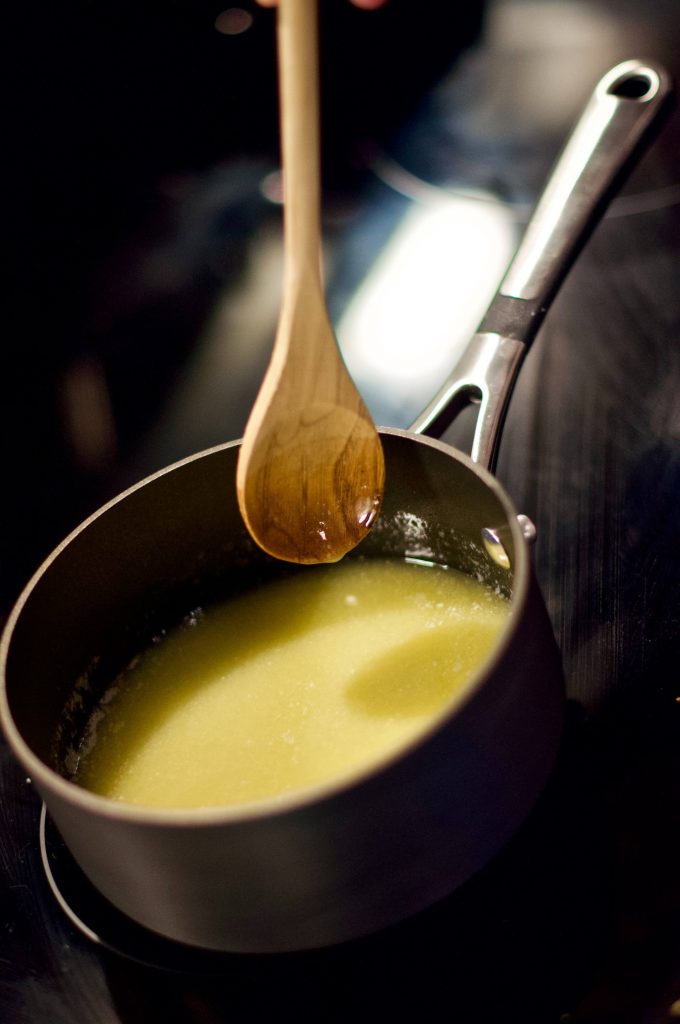
Vegetable Shortening as an alternative to margarine
Vegetable shortening is a solid fat made from hydrogenated vegetable oils, such as soybean, cottonseed, or palm oil. The hydrogenation process transforms the oils into a solid state at room temperature, giving shortening its characteristic texture. You can use it in baking to create flaky pie crusts, tender cookies, and other pastries.
Vegetable shortening can be a good alternative to margarine, and here’s why:
- Texture: Like margarine, vegetable shortening is solid at room temperature. This allows you to use it for certain baking applications where a solid fat is needed.
- Baking: You can use vegetable shortening in recipes that require a particular texture, such as achieving flakiness in pie crusts or creating a tender crumb in cookies. It can be a good substitute for margarine in these types of recipes.
- Neutral Flavor: Vegetable shortening has a neutral taste, which allows it to take on the flavors of other ingredients in your recipe without imparting a distinct flavor of its own.
However, it’s important to note that vegetable shortening is high in saturated fats and therefore may not be considered the healthiest option. If you’re looking for a more health-conscious substitute, you might explore alternatives like oils, nut butters, or even applesauce depending on the specific recipe. For certain baking applications, though, vegetable shortening can indeed serve as a suitable substitute for margarine.
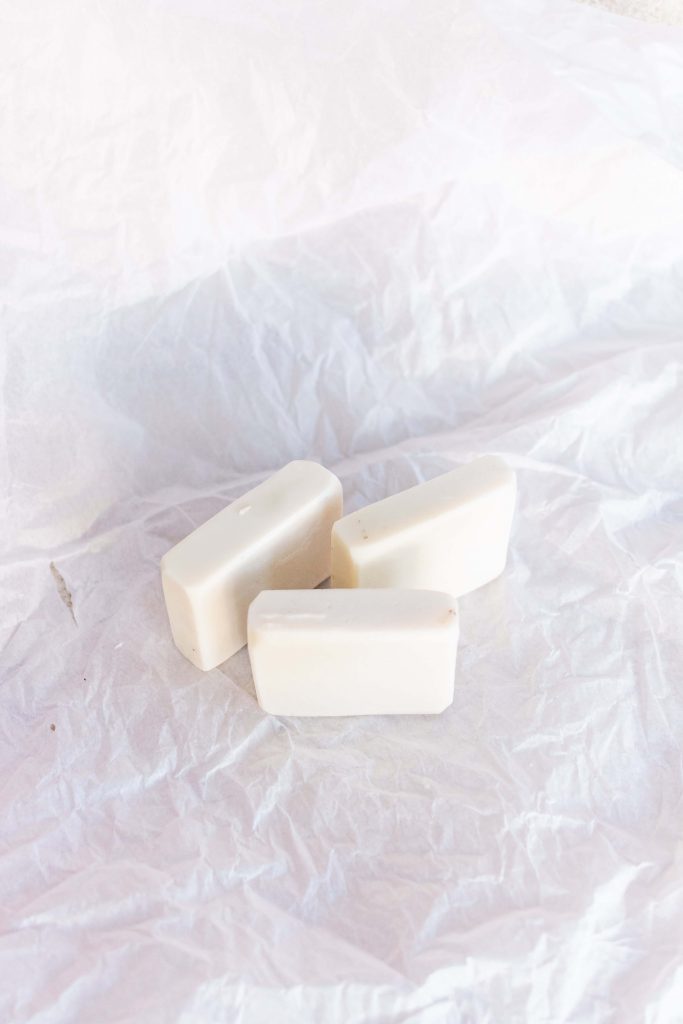
Summary for Margarine substitutes
Okay – that’s you all sorted with suitable substitutes for margarine.
So here’s a quick recap of the top ten substitutes that can add a different twist to your recipes:
- Butter: The classic choice, and it brings a rich flavor to the table.
- Olive Oil: For a Mediterranean touch, try using extra virgin olive oil. It works well in many recipes.
- Coconut Oil: Adds a hint of coconut flavor and works great in both sweet and savory dishes.
- Avocado: Mashed avocado or avocado oil can provide a creamy substitute, or healthy oil to your dishes.
- Greek Yogurt: In some recipes, Greek yogurt can provide a tangy and creamy texture.
- Nut Butters: Almond, peanut, or cashew butter can be excellent alternatives, bringing their unique flavors.
- Applesauce: Works well in baking, particularly in recipes that call for melted margarine.
- Cream Cheese: Has a distinctive tangy flavor which can be a delicious addition to certain recipes.
- Ghee: Clarified butter with a rich, nutty flavor and a higher smoke point.
- Vegetable Shortening: Ideal for baking, it provides a similar texture to margarine.
Feel free to experiment with these substitutes based on your taste preferences and the specific requirements of your recipes.
We have gathered together a lot more facts on ingredients such as herbs, spices, oils, nuts, etc. if you would like to learn some more.
Or if you need to swap out another ingredient have a look at our Substitutes section.
Table of Contents
- What are the best Margarine substitutes?
- What is Margarine and how is it made?
- Where can I buy Margarine?
- What can I substitute for Margarine?
- Margarine substitutes
- Butter
- Olive Oil as a margarine substitute
- Coconut Oil as an alternative to margarine
- Avocado (mashed or oil)
- Greek Yogurt as a substitute for margarine
- Nut Butters as a margarine alternative
- Applesauce as a margarine substitute
- Cream Cheese as a margarine substitute
- Ghee as a magarine alernative
- Vegetable Shortening as an alternative to margarine
- Summary for Margarine substitutes
